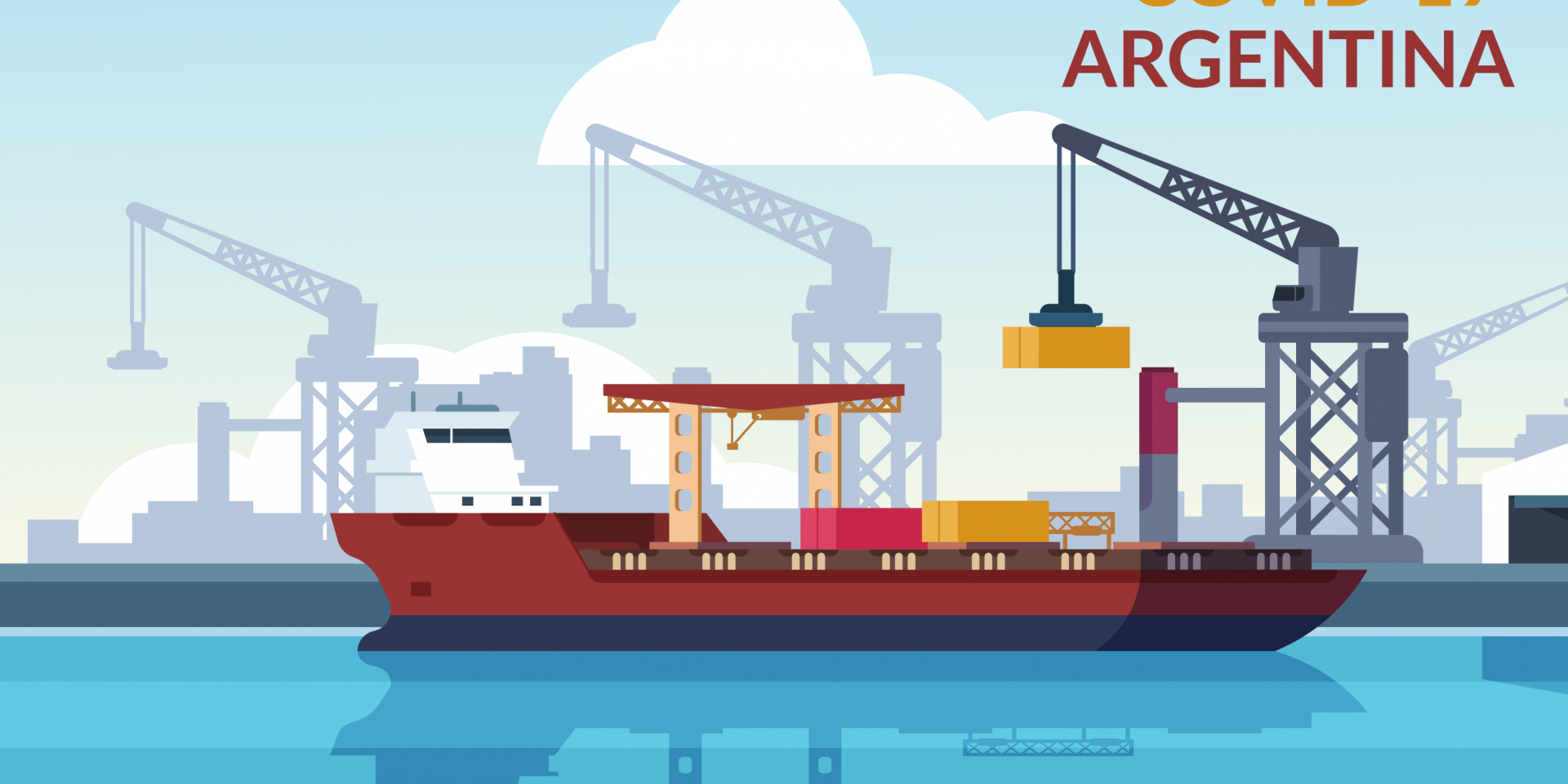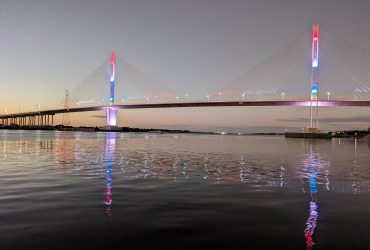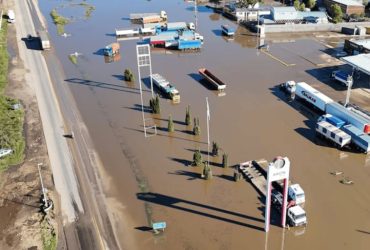As Argentinian Government maximizes health and safety measures in order to flatten the infection curve of Coronavirus COVID-19, the General Ports Administration has introduced a new protocol regarding cargo vessels and passenger international cruises arriving the Buenos Aires Port.
GENERAL PORTS ADMINISTRATION [AGPSE, by its Spanish acronym]
IMPLEMENTATION PROTOCOL IN THE AREA OF THE BUENOS AIRES PORT AGAINST THE SPREAD OF CORONAVIRUS (COVID-19)
Within the frame of the health emergency, and with the aim of enforcing the measures and recommendations provided by the NATIONAL EXECUTIVE BRANCH, regarding Public Health, through Emergency Decree [DNU, by its Spanish acronym] N° 260/2020 and by the National Ministry of Transport through ACTA-2020-18334265-APN-SECGT#MTR in the are of RIVER, MARITIME AND LAKE TRANSPORT regarding the control of the spread of CORONAVIRUS (COVID-19), the GENERAL PORTS ADMINISTRATION [AGPSE] issued the following ACTION PROTOCOL, which will be valid in the jurisdictional scope of the BUENOS AIRES PORT.
The action protocol coordinator appointed is the Official of Port Facilities Safety [OPIP, by its Spanish acronym] D. Pablo SPATA. Contact number: [+54 9] 11 3405 2888.
- All vessels coming from abroad, both cargo vessels and passenger international cruises, MUST show before the Health Authorities -at least SEVENTY TWO (72) hours before entrance to the Río de la Plata channel and prior to the Pilot boarding- the “Maritime Declaration of Health” that certifies the vessel’s health conditions at the time of arrival, plus the relevant information regarding the origin and all the information required to evaluate the health situation of the crew and the passengers, if it corresponds. Vessels that come from the Waterway PARANÁ-PARAGUAY, and which have not been on any Argentine port, shall show the “Maritime Declaration of Health” at least FORTY EIGHT (48) hours prior to the time of arrival at the port.
- No vessel coming, as last port of origin, from abroad, may take dock without authorization and prior intervention of Frontiers Health Department.
- No agent of the Port Administration, nor staff of official bodies and/or private companies, except from the national health authority, will be allowed to board the vessel until the “Free Pratique” is confirmed, if it has not been previously issued.
- Contact care with crew members will be maximized if the vessel comes from AREAS AFFECTED BY THE PANDEMIC, catalogued by the WORLD HEALTH ORGANIZATION (WHO) as virus circulation areas, such as: Member States of the European Union, Member States of the Schengen Area, United Kingdom of Great Britain and Northern Ireland, United States of America, Republic of Korea, Japan, People’s Republic of China, Islamic Republic of Iran, Brazil and Chile, plus the countries that might be added in the proximate future.
It is stated that said Areas will be daily updated by the NATIONAL MINISTRY OF HEALTH, in its capacity of Enforcement Authority, according to the epidemiological evolution.
- If during the stay at port a suspicious case of CORONAVIRUS COVID-19 is reported, the vessel shall immediately interrupt its operations, disembark the crew or passengers and prohibit boarding of those who are not part of the crew and will immediately notify ARGENTINE NAVAL PREFECTURE [PNA, by its Spanish acronym] and FRONTIERS HEALTH DEPARTMENT, in order to evaluate the case.
- The staff that had been in contact with vessel’s operation will be isolated on an area of the port facilities and will not be allowed to leave it until the Health Authority says so.
- Every joint work that has to be done with the vessel will be done through its Captain or official on duty at the moment. If it were necessary to evacuate a crew member or a passenger, such procedure MUST be coordinated with PNA, along with the guidance of FRONTIERS HEALTH DEPARTMENT. In this case, the vessel shall remain quarantined on berth guarded by PNA, , with landing stage lifted until the Health Authority takes on the situation.
- If FRONTIERS HEALTH DEPARTMENT decides to evacuate the crew member or the passenger who is on board, it will do it with its own staff until the patient enters the ambulance of the BUENOS AIRES CITY SYSTEM OF URGENT MEDICAL ATTENTION [SAME, by its Spanish acronym], jointly with PNA.
- Evacuated patients will be taken to one of the following hospitals of the Autonomous City of Buenos Aires: Hospital General de Agudos Dr. Juan A. Fernández; Hospital General de Agudos Dr. Cosme Argerich; and Hospital de Infecciosas Francisco Javier Muñiz, always in coordination with the Health Authority and the SAME.
- If the patient refuses to isolation, preventive measures of the security force staff (PNA) will be maximized. The staff MUST wear gloves, face mask and eye protection.
- If a crew member with a suspicious case, for any exceptional reason, is on the port facilities or if an employee of said facilities has to be evacuated, he/she will have to wait at an isolation room -which, besides of being in good cleanliness conditions, must have an exclusive sanitary facility- until he/she is taken to hospital. The AGPSE will set up an isolation room at the Puerto Nuevo area (offices of the berth of Dock E, store #1) and at the Boca Barracas area, building of operational area.
- Once the patient who was at the isolation room has been taken to hospital, the room will be sanitized by trained personnel with the proper products before someone else enters.
- As personal safety equipment, the AGPSE will provide, when the intervention of health or security personnel is required, at least ten (10) disposable equipments composed of: disposable coverall, face mask and goggles. At least four (4) of them will be available for the OPIP on a mobile unit.
- Only in the case of extreme need, with the intervention of the Health Authority, the discharge of common and personal care wastes will be authorized. In such case, the final discharge of wastes must be immediately planned.
- The health and cleaning measures of the work and circulation areas will be maximized.
- Any needed interaction with the vessel’s personnel will be done respecting social distancing of at least two (2) meters.
- There will be hand sanitizer at the end of the landing stage which must be used at boarding and at disembarking.
- The vessel’s night watchman will have to make his work from ground.
- People outside vessel’s operations will not be allowed to visit foreign vessels.
- Vessels’ crews will be allowed to go to berth only for tasks of urgent operational need that cannot be carried on by ground personnel. Non-essential vessel maintenance tasks from ground will not be allowed.
- Routine crew replacements will not be allowed and crew members will be allowed to disembark only in the case of urgent need, for example receiving medical attention on ground, accompanied by personnel of the Maritime Agency and following the relevant indications according to the journey report and the patient’s pathological condition.
- The Terminals and licensed areas shall draft their own protocols adjusted to their activities within 24 hours since reception of the present protocol.




